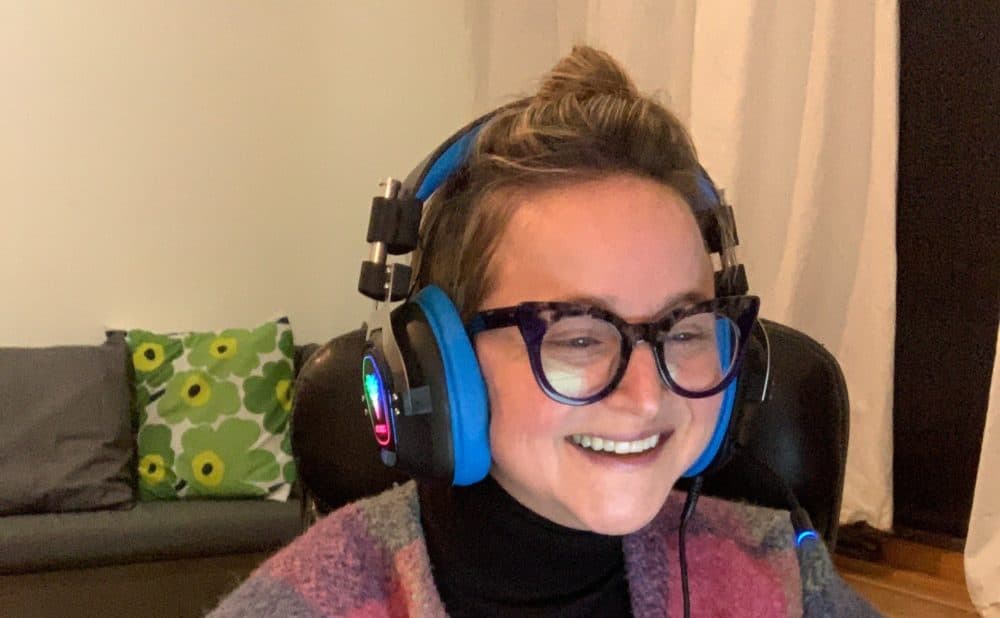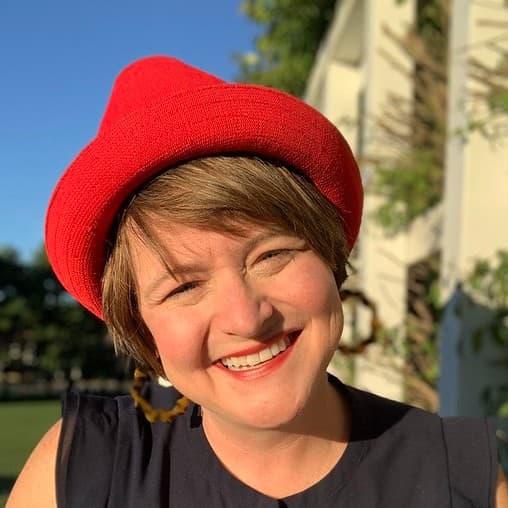Advertisement
Commentary
I'm So Tired Of Staring At My Face On Zoom

Three times a week, I join my college students in our Zoom classroom. My classes usually comprise 20 to 25 students, and not one single student ever turns on his or her video screen. The college where I teach, like many other schools, wants to be sensitive to students whose home environments might cause an added layer of shame to their educational experience. Video is not required. For 15 weeks of last semester, I was the only face moving.
Embarking on this new semester, I continue to speak into the void.
If you’ve never stared at your own face while teaching, it is a most humbling social situation. Given the lazy hygiene the quarantine permits, and given the safe visits to the gym it does not permit, I suspect many of us who’ve observed strict shelter-in-place orders are not feeling extra body-positive right now. And yet this is perhaps the year we’ve spent the most time beholding the mugs our mamas gave us.
I wonder: Is this the exposure therapy we’ve all been needing? Or has the over-exposure to our own countenances backfired and ratcheted up our self-consciousness or lowered our self-esteem even more?
... I suspect many of us who’ve observed strict shelter-in-place orders are not feeling extra body-positive right now.
It would appear it’s both/and. Mirror exposure therapy is the psychological treatment method clinicians have found successful in treating patients with oftentimes profound body dysmorphia. Using controlled approaches with the guidance of a therapist, patients evaluate themselves negatively or strive to list positive physical traits for a defined period of time while looking at themselves in the mirror.
I don’t believe that frequent FaceTime calls or increased presence on social media are akin to mirror exposure therapy. As I showed up each day to teach, I confront how much my hair is thinning and graying at a pace that my beauty budget cannot ameliorate. Seeing my own face again and again at unflattering angles or against an abysmal lighting scheme has compelled me to be more compassionate toward myself. I know I’m not really putting my best face forward. I’m just doing well to show up most Tuesdays and teach a lesson on writing a strong thesis statement to the phantom students on Zoom.
Advertisement
But I also think many of us have scrutinized ourselves so mightily for so long that we are tired of the proverbial portrait in the frame and tired of the proverbial wall upon which it hangs. We are desperate for a change of scenery and with that, a new vessel to carry this pandemic-weary soul. It is no wonder that plastic surgeons are reporting an uptick in patient inquiries. I tend to agree, though, with what one behavioral psychologist said about the possible diminishing returns of nips and tucks. “If you like the way you look after surgery and it gives you newfound confidence,” Michael Mazius told the Washington Post, “it’s unlikely the confidence will last if you haven’t meaningfully altered the architecture of your mind.”
We are desperate for a change of scenery and with that, a new vessel to carry this pandemic-weary soul.
As we surpass 500,000 COVID deaths and plenty of others fight for their lives, the cognitive dissonance — call it COVID-dissonance — caused by our vanity is difficult to reconcile. Can we both grieve the virus that has decimated whole families, while also be a tad ticked off that we’ve become Frumpelstiltskin, the imp that spins boredom into TikTok gold? Perception is reality, as the mirror has told us since we first peered at our reflection and realized the person we were looking at was our very self. I’ve begun to perceive this reality as set apart, as on a sort of Planet Quarantine we all landed on while a virus spun our normal planet out of orbit.
Just a few weeks into spring semester and I’ve asked my students to post pictures of themselves in our online discussion board. Some of them shared photos of their younger selves, headed to kindergarten with all the hope and sandwiches their lunchboxes could contain. Only a few shared recent photos. Perhaps they felt as though lately, they’d, too, spent excessive time looking at their faces.
I hope, however, that we will remember our temporary occupation on Planet Quarantine, and bring back with us compassion for our big old noses and wrinkled brows.
